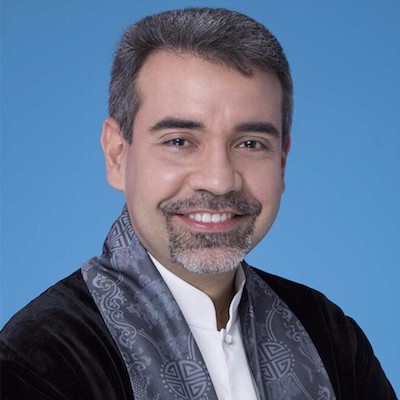
File Photo: Evandro Menezes de Carvalho
Xi Jinping's speech at the opening ceremony of the 19th National Congress of the Communist Party of China echoed worldwide. In announcing the emergence of a New Era as a result of the "great success of socialism with Chinese characteristics," Xi takes in his hands the writing of 21st century history.
For Xi, this New Era means, first of all, that "the Chinese nation, with an entirely new posture, now stands tall and firm in the East." Left behind is the era of humiliation to which the Chinese people endured in the 19th century as a result of innumerable foreign invasions such as the Opium Wars, and the era of internal strife for the consolidation of Chinese territory and people's sovereignty in the 20th century.
21st century China, owing to the successful process of reform and opening-up led by the Communist Party, is preparing itself to go up the podium of the world economy. China "has stood up, grown rich, and become strong; and it now embraces the brilliant prospects of rejuvenation," Xi said.
This New Era, Xi further predicts, "sees China moving closer to the center stage and making greater contributions to mankind.” His statement expresses China's confidence in its future and, at the same time, its commitment to the future of humanity. In this sense, Xi's speech was received worldwide with admiration.
The government is aware that this New Era depends on the realization of the two centennial goals, the first being the construction of a "moderately prosperous society" by 2020, and the second a "great modern socialist country" by the middle of the 21st century.
Considering the global uncertainties and the challenges in the domestic economy, the targets are audacious. However, the political will of CPC leaders to see those goals realized seems to be even greater than the obstacles facing them.
And there is enough reason to believe it. China's GDP stands at $11.2 trillion and the country contributes more than 30 percent to global economic growth. The prognosis is that China will become the largest economy in the world by 2025.
The part of Xi's speech with had the greatest global impact was when he introduced socialism with Chinese characteristics as "a new trail for other developing countries to achieve modernization." And he went even further by offering "Chinese wisdom and a Chinese approach to solving the problem facing mankind."
China has provided the world an alternative model to follow featuring its governance model and cultural and historical heritage, but also with a fundamental difference in leadership style compared to that of Western powers: "It offers a new option for other countries who want to hasten their development while preserving their independence." Thus, China has committed itself to respecting the choice of each state. That means it promises not to interfere in the internal affairs of other countries.
It is worth remembering that in the 1990s it was believed that the model of Western democracies would spread throughout the world as the only model worth following at the end of the Cold War. But subsequent facts have shown that it was not history that came to an end, but the narrative itself.
The fact is Western democracies are suffering a legitimacy crisis aggravated by the economic crisis of 2008 that had the US as its epicenter. Since then we have witnessed an increase in poverty, violence, religious and racial intolerance and xenophobia in Western democracies.
Earlier this year, Oxfam (Oxford Committee for the Fight Against Hunger) published a report showing that the wealth of the eight richest people is equivalent to that of the world's poorest or 3.6 billion people.
The social dilemma between the super-rich and the poorest threatens not only the stability of a country, but world peace at large. It is the huge income gap and the policies of Western nations that are driving democracies into decline. This is the central problem.
Xi Jinping is cognizant of the risks of widening social inequality. That's why he said that "the principal contradiction facing Chinese society... is the contradiction between unbalanced and inadequate development and the people’s ever-growing needs for a better life.” Socialism with Chinese characteristics will be tested on this aspect.
Unlike the “American dream” driven by excessive individualism, the Chinese dream is guided above all by the collective interest. Looking forward, green, ethical, collaborative, and shared development will well define the New Era and is compatible with Chinese socialism. This project is worthy of our engagement. After all, the world does not exist only for the benefit of eight people.
(The author is head of the Nucleus for Brazil-China Studies of Getulio Vargas Foundation’s Law School (FGV Direito Rio) and coordinador of the Nucleus for BRICS Countries Studies at Fluminense Federal University.)


